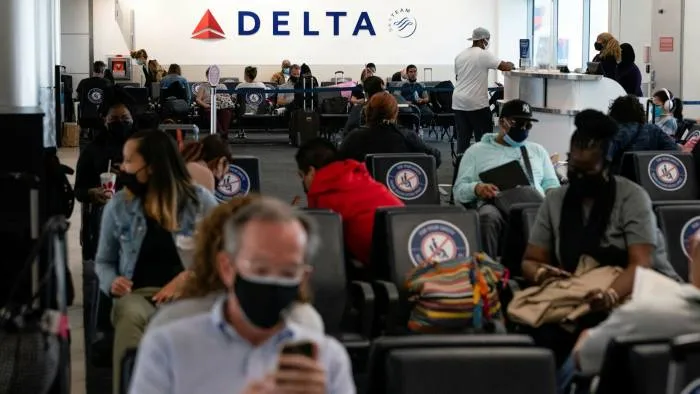
The Biden administration will drop travel restrictions for vaccinated people from November 8, reopening the US to foreign nationals travelling by air or land from places around the world, including the UK and Europe.
The White House confirmed on Friday its new travel system would start in three weeks’ time, ending the series of travel restrictions that have been in place since the start of the Covid-19 pandemic.
Kevin Munoz, a White House spokesperson, said on Twitter that the new rules would apply to “both international air travel and land travel”, and was “guided by public health, stringent, and consistent”.
Under the current rules, which were put in place by former president Donald Trump, people who have been in the UK, Ireland, the Schengen area, China, India, Iran, South Africa or Brazil in the previous 14 days cannot enter the US unless they are a US resident, green card holder or have a specific exemption.
Trump rescinded those rules on his last day in office, but they were immediately reimposed by his successor Joe Biden.
British and EU officials have argued for months that the bans are illogical now that vaccination rates are higher in most of Europe than the US, and Covid case rates lower. They were vindicated last month when the Biden administration announced it would replace them with vaccine requirements in early November.
Air travellers will have to show proof of having been fully jabbed and show a negative Covid test taken in the previous three days.
The US will also reopen its land borders with Canada and Mexico to vaccinated travellers, ending restrictions put in place at the start of the pandemic and easing what was becoming a big strain in Biden’s relationship with America’s closest neighbours.
The US Centers for Disease Control and Prevention will release the full details on how the policy will be implemented in the coming days, including which vaccines will be accepted and what kinds of proof will be needed. People briefed on the plans said children would be exempted from the vaccination requirement, though it is not clear at what age the US will set the cut-off.
A firm date for the restart of international travel will be welcomed by the airline and travel industries, which have been badly hit by the near total shutdown of some of their most lucrative routes. Flights between the UK and North America were worth $9bn a year in revenue to UK and US airlines before the pandemic.
Satya Anand, president of Emea for the hotel group Marriott, said he was “extremely pleased” by the news. “This decision will further support the travel industry’s global recovery, and we look forward to welcoming these travellers back to our US hotels.”
The opening of the border would also be crucial to the recovery of US cities where footfall has remained low, said Peter Kern, chief executive of Expedia.
“New York, San Francisco, Los Angeles have dragged because normally those would filled up by a lot of international travellers . . . When Europeans are here, it is good for cities,” he said.
The US welcomed about 80m international tourists in 2019, according to the UN World Tourism Organization. So far this year, arrivals of foreign citizens have been down 79 per cent compared with 2019.




















